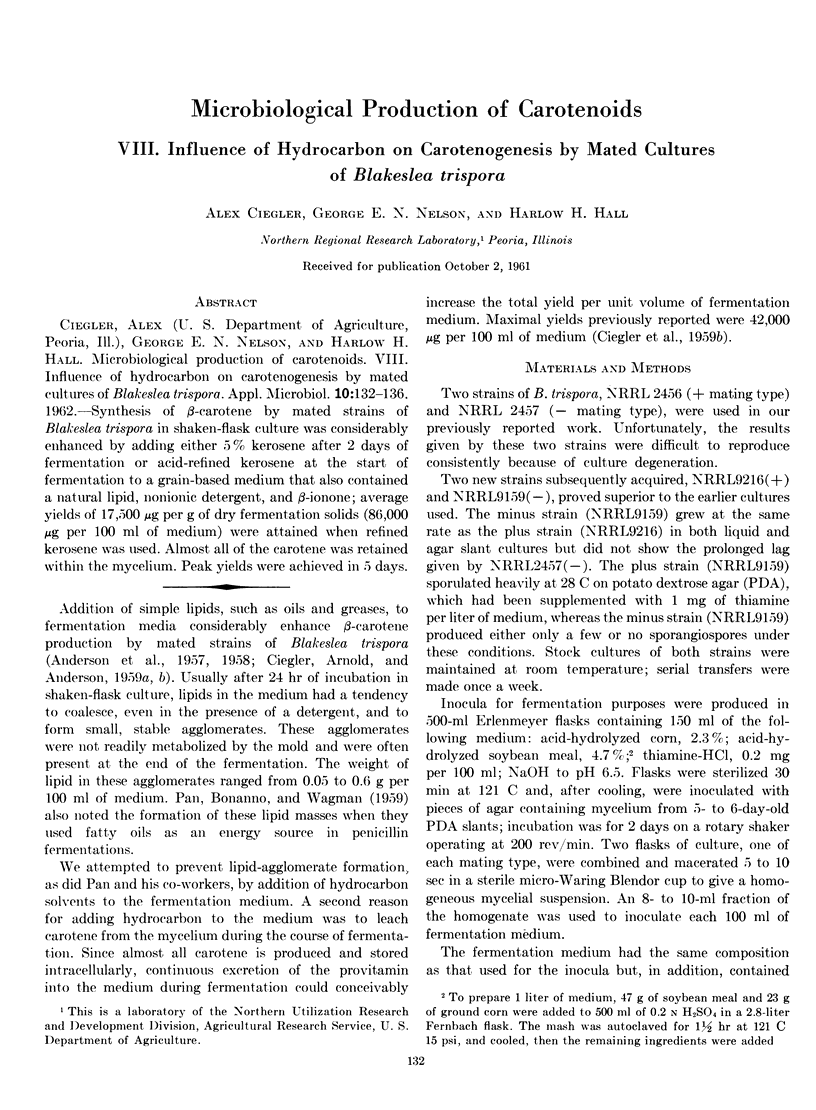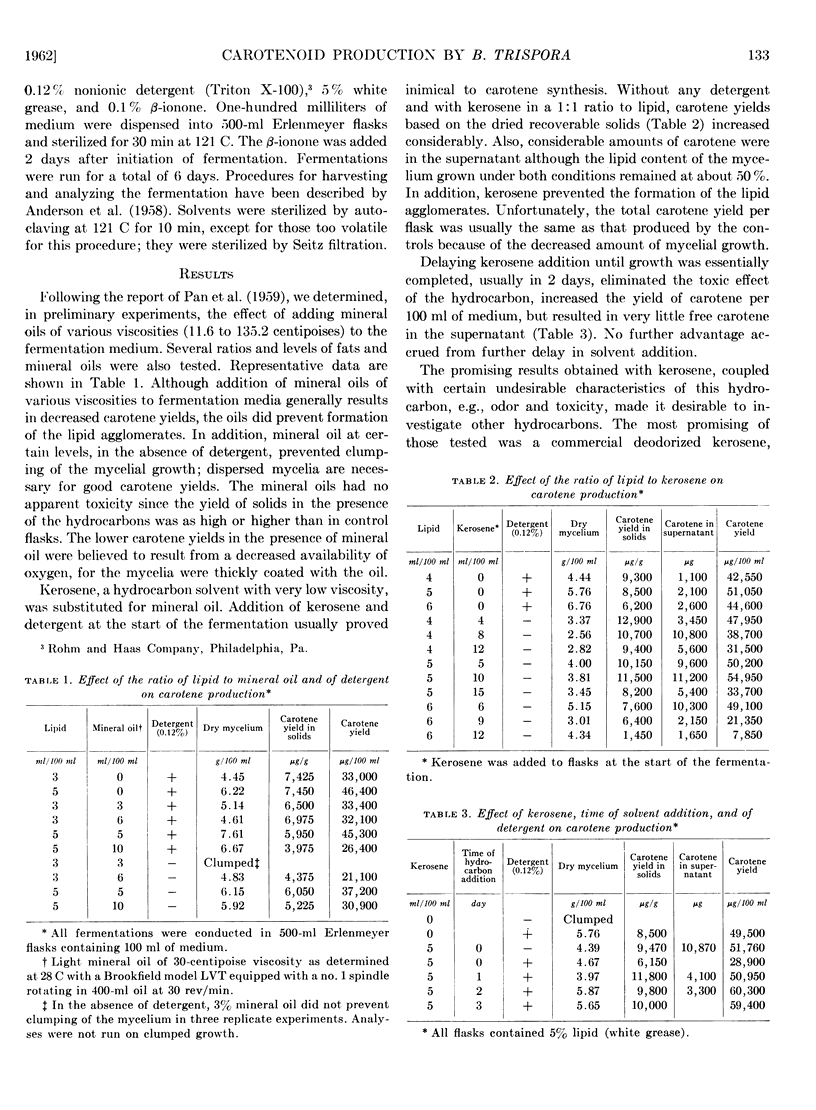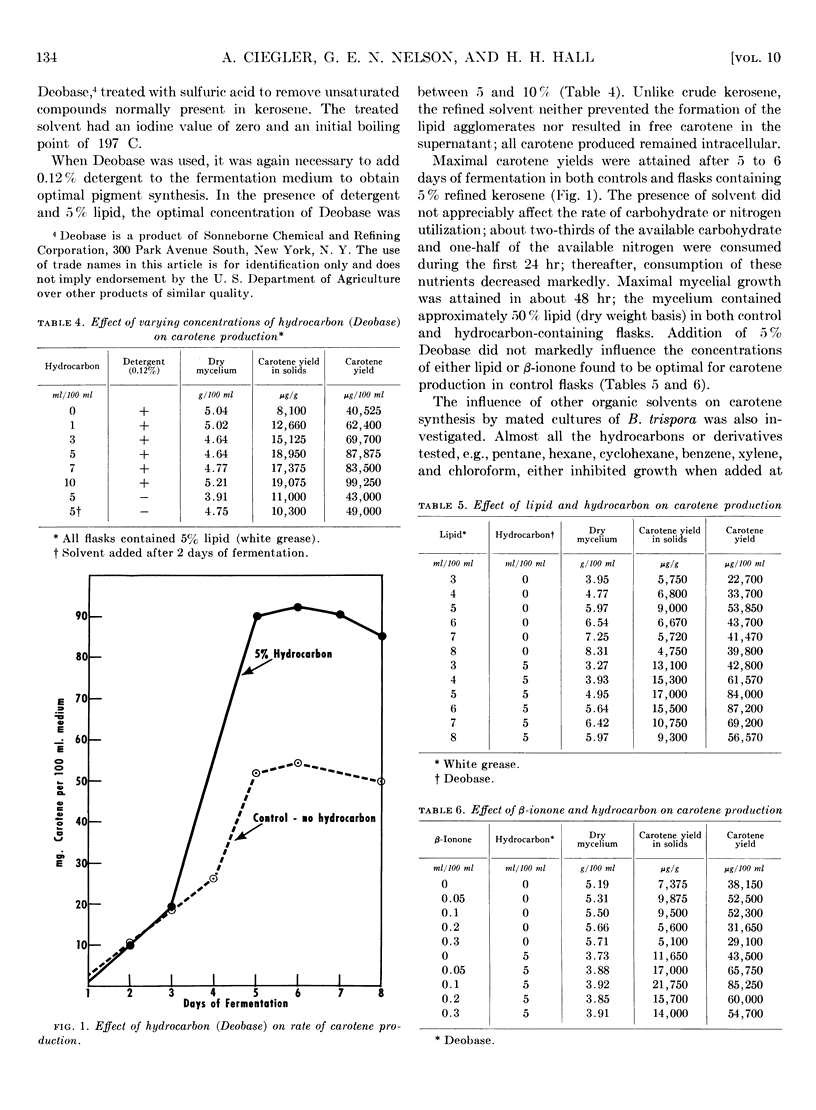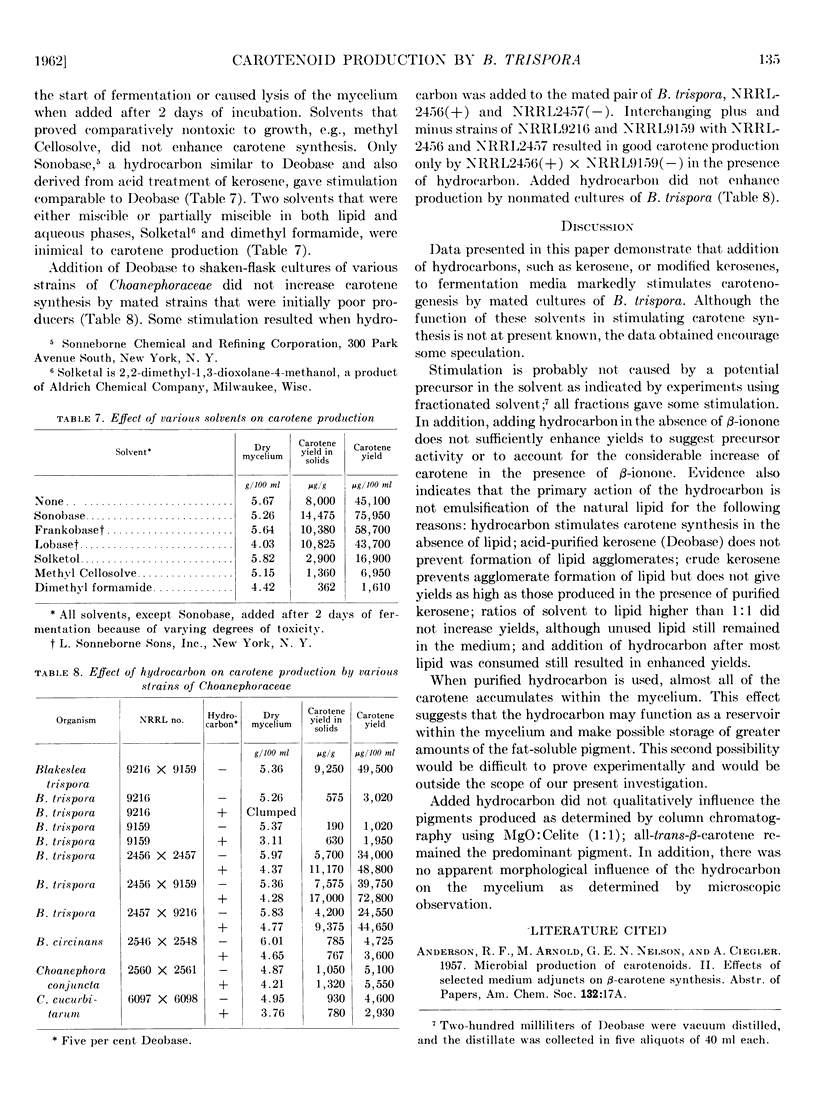Abstract
Synthesis of β-carotene by mated strains of Blakeslea trispora in shaken-flask culture was considerably enhanced by adding either 5% kerosene after 2 days of fermentation or acid-refined kerosene at the start of fermentation to a grain-based medium that also contained a natural lipid, nonionic detergent, and β-ionone; average yields of 17,500 μg per g of dry fermentation solids (86,000 μg per 100 ml of medium) were attained when refined kerosene was used. Almost all of the carotene was retained within the mycelium. Peak yields were achieved in 5 days.
Full text
PDF




Selected References
These references are in PubMed. This may not be the complete list of references from this article.
- CIEGLER A., ARNOLD M., ANDERSON R. F. Microbiological production of carotenoids. IV. Effect of various grains on production of beta-carotene by mated strains of Blakeslea trispora. Appl Microbiol. 1959 Mar;7(2):94–98. doi: 10.1128/am.7.2.94-98.1959. [DOI] [PMC free article] [PubMed] [Google Scholar]
- CIEGLER A., ARNOLD M., ANDERSON R. F. Microbiological production of carotenoids. V. Effect of lipids and related substances on production of beta-carotene. Appl Microbiol. 1959 Mar;7(2):98–101. doi: 10.1128/am.7.2.98-101.1959. [DOI] [PMC free article] [PubMed] [Google Scholar]
- PAN S. C., BONANNO S., WAGMAN G. H. Efficient utilization of fatty oils as energy source in penicillin fermentation. Appl Microbiol. 1959 May;7(3):176–180. doi: 10.1128/am.7.3.176-180.1959. [DOI] [PMC free article] [PubMed] [Google Scholar]


